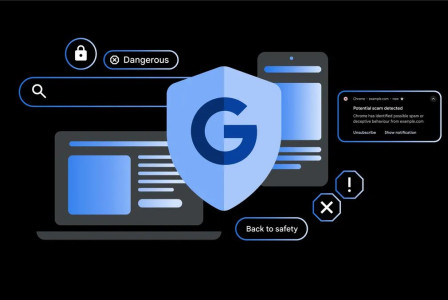SEARCH
38% increase in cyber-attacks targeting well-known family brands

SHARE IT
Ahead of International Family Day, which is celebrated on May 15, Kaspersky experts analysed the digital threats used as bait by popular family-oriented brands such as Disney, LEGO, Toca Boca and others.The research, based on tracking selected keywords, revealed a steady increase in attack attempts, which rose by 38% from Q2 2024 to Q1 2025.
Kaspersky's telemetry demonstrates a steady upward trend in attack attempts that exploit brands targeting children and families. Starting at just 89,000 in Q2 2024, the number of attacks has been increasing quarter after quarter, reaching nearly 123,000 in Q1 2025. Throughout the period under review, Kaspersky identified over 432,000 such attempts.
Among the most commonly used brands during the period under review were LEGO, Disney and Toca Boca - all widely recognised and trusted by children and parents. LEGO-themed content accounted for the vast majority of attacks, with over 306,000 attempts, followed by Disney (62,000) and Toca Boca (45,000). Paw Patrol and Peppa Pig were also used as popular lures, albeit to a lesser extent - 12,500 and 4,900 attempted attacks respectively. Cybercriminals exploit the popularity and emotional familiarity of these brands to trick users into downloading malicious files, often in the form of cartoons or games. The more popular a brand is, the more attractive it becomes as bait for the perpetrators.
Kaspersky's analysis shows that the most common threats targeting children and families are not always the most obvious ones. During the reported period, nearly 400,000 attempts were linked to Downloaders - software that may seem harmless but is often used to secretly install other potentially dangerous applications. These downloaders often masquerade as games, videos or installers associated with popular brands, making them particularly effective at deceiving users.
In addition, over 7,800 cases involved Trojans, which can steal sensitive data, monitor activity or provide remote access to attackers. These are particularly dangerous when hidden inside seemingly innocent files, such as cheats or applications created by followers. The adware is responsible for over 6,400 attempted attacks, usually appearing as flashy games or video apps that constantly show users unwanted ads, slowing down devices and potentially opening the door to additional threats.
As part of the analysis, Kaspersky researchers identified multiple fake and phishing websites that mimic the design and branding of beloved family brands. One notable example was a phishing page created to resemble the official website of the Tokyo Disney Resort. Such scams are often indistinguishable from legitimate pages at first glance, with the only difference being the website URL. The fake website offered users the opportunity to "buy" tickets to the park, just like the real one, and asked them to enter their personal and payment information. However, instead of securing a magical day at the theme park, victims could suffer the theft of their bank card details.
Another discovery made by Kaspersky researchers concerned scams that exploited the name of MrBeast - a YouTube celebrity who has a wide appeal to children and teenagers and is known for competitions with expensive prizes such as electronic devices, money and even houses. Cybercriminals created phishing pages promising "gifts from MrBeast", including digital gift cards for platforms such as Roblox, Xbox and PlayStation. The site urged users to choose their prize and complete a seemingly harmless process to obtain it. To increase the pressure on the individual user, a countdown timer was displayed, urging visitors to "complete a sponsored activity" within a limited time to unlock the final reward code.
The whole process is a tactic designed to redirect victims to increasingly misleading scam pages. Eventually, users are asked to pay a small commission fee to claim their "gift". However, after submitting the payment, the victim may have no reward and may have lost money.
"Cybercriminals are particularly good at emotional manipulation - and there is no more sensitive content than what children trust and love. By imitating popular companies orinfluencers like MrBeast, attackers create a sense of familiarity and excitement that reduces user attention. That's why it is necessary for parents to be informed and teach children how to question 'too good to be true' offers before they click," comments Evgeny Kuskov, a security expert at Kaspersky.
To keep your children safe online, Kaspersky recommends the following:
It is vital for parents to have open communication with their children about the potential risks they may face online and provide them with clear guidelines on how to stay safe online.
To protect your child from downloading malicious files while using a video game, we advise parents to install a reliable security solution, such as Kaspersky Premium, on their device.
By staying up-to-date on the latest threats and actively monitoring their children's online presence, parents can create a safer online environment for their children.
To help parents introduce their children to cybersecurity amidst the evolving threat landscape, Kaspersky experts have developed the Kaspersky Cybersecurity Alphabet with key concepts from the cybersecurity industry. In this book, your children will be introduced to new technologies, learn the basic rules of cybersecurity, learn how to avoid cyber threats and recognize the tricks of scammers. After reading this book together, you'll be sure your child knows how to distinguish a phishing website, how VPNs and QR codes work, and even what honeypots and encryption are and what role they play in modern cybersecurity. You can download a free pdf of the book and review the basics of cybersecurity with your child, laying the foundation for a safe online environment.
With special apps for children's digital learning, such as Kaspersky Safe Kids, parents can effectively protect their children in both the digital and physical world. Such apps help adults ensure a safe and positive digital experience for young children, establish good habits, protect them from inappropriate content, adjust screen time and control children's physical location.
MORE NEWS FOR YOU

 Help & Support
Help & Support 

